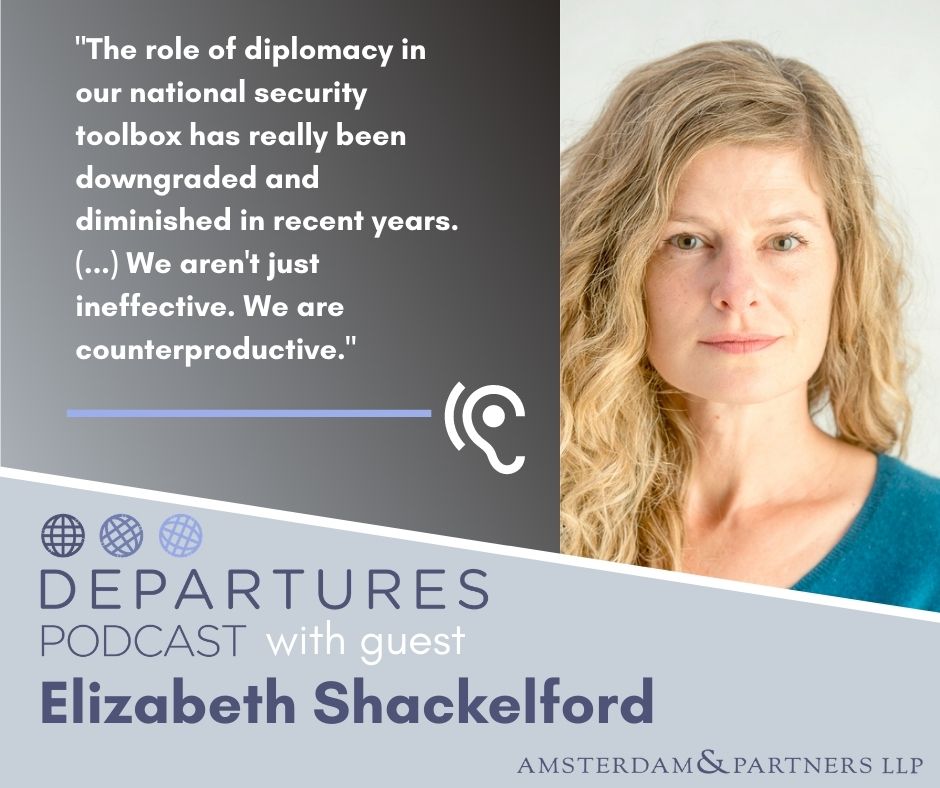Departures Podcast with Elizabeth Shackelford

As a career foreign service officer, Elizabeth Shackelford was seen as a rising star in the US State Department, a recipient of the Barbara Watson Award for Consular Excellence. But in 2017 she resigned from public service, publishing a stinging indictment of a letter which brought to light the extraordinary mismanagement and strategic drift under then-Secretary of State Rex Tillerson.
In Shackelford’s new book, “The Dissent Channel: American Diplomacy in a Dishonest Age,” she takes the reader inside the collapse of the U.S. diplomatic effort in South Sudan, which had fallen into a pernicious civil war with Washington left backing a murderous dictator.
“It would be generous to call it a government,” she says in the podcast interview. “It is a collection of individuals who are exploiting every opportunity they have to make themselves wealthy and powerful at the expense of the people of the country.”
Of the catastrophic diplomatic failure in South Sudan, Shackelford also evenly points blame at the Obama administration and then-National Security Advisor Susan Rice. “We picked our ‘winner’ early and stuck with them,” Shackelford says, despite increasing evidence of atrocities being committed by bad actors within President Salva Kiir’s cohort.
But the diplomat’s frustrations came to a high point under the Trump administration, as the State Department was repeatedly hamstrung and undermined from doing its important work. There were also a series of disputes taking place in the oil sector involving SPLM militants, one of which culminated with the Ludin Sudan legal case.
“The role of diplomacy in our national security toolbox has really been downgraded and diminished in recent years, really over the past 20 years as the military’s role has become the primary tool we are using,” says Shackelford. “We aren’t just ineffective. We’re counterproductive.”
Shackelford says that the picture of the coronavirus pandemic would be entirely different if we were leading with diplomacy.
“It is costing Americans dearly that we are not integrated with the global response,” she says. “We would be well-coordinated with our European and Asian allies in terms of the supplies we need and how we manage things like our totally intertwined economies and trade. But instead, we’ve really cut off all those opportunities.”











